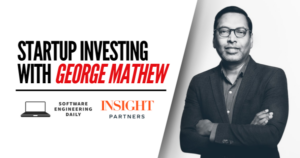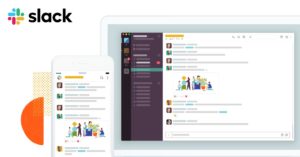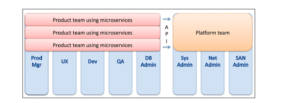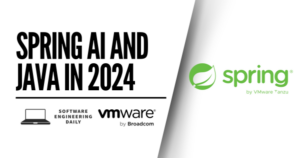Gigster with Roger Dickey
Podcast: Play in new window | Download
Subscribe: RSS


You have heard the phrase: every company is becoming a software company. An insurance company is now supposed to turn into a software company that sells insurance. A clothing retailer needs to reinvent itself to be able to build software to manage the production and distribution of its clothing.
Software applications provide so much leverage to an organization, it seems smart to develop in-house software teams to build those applications. But does it really make sense? Is there a better alternative?
In the 90s outsourcing was a common solution to this problem. If you didn’t have software expertise at your company, you would hire a large consulting firm. These firms would often hire inexperienced offshore developers, and the resulting code quality was not so great.
Because of the bad experiences of the first Internet boom, companies became more cautious about outsourcing their engineering work–which led to today, where the standard is to hire your own software team.
The world has changed in ways that have made outsourcing a more viable solution.
Programming best practices are more widely understood. There is an international community of software engineers that share information on places like Stack Overflow, Quora, and Twitter. Off-the-shelf collaboration tools make it much easier to communicate the requirements of a project to a team of developers.
Gigster is a company that is working to optimize the engineering of software projects. Large enterprises come to Gigster to build new projects from scratch–whether that project is a marketplace, a mobile application, or a machine learning model. Roger Dickey is the CEO of Gigster, and he joins the show to describe how Gigster works, and why it often makes sense for companies to focus on their core competency and outsource software engineering.
Some of our most popular episodes of Software Engineering Daily describe how leading software companies are being built–we have covered Giphy, Netflix, Digital Ocean, Stripe, and many others. Download the Software Engineering Daily app for iOS or Android to hear all of our old episodes. They are easily organized by category, and as you listen, the SE Daily app gets smarter, and recommends you content based on the episodes you are hearing. If you don’t like this episode, you can easily find something more interesting by using the recommendation system.
The mobile apps are open sourced at github.com/softwareengineeringdaily. If you are looking for an open source project to hack on, we would love to get your help! We are building a new way to consume software engineering content. We have the Android app, the iOS app, a recommendation system, and a web frontend–and more projects are coming soon. If you have ideas for how software engineering media content should be consumed, or if you are interested in contributing code, check out github.com/softwareengineeringdaily, or join our Slack channel (there’s a link on our website)–or send me an email: jeff@softwareengineeringdaily.com
Transcript
Transcript provided by We Edit Podcasts. Software Engineering Daily listeners can go to weeditpodcasts.com/sed to get 20% off the first two months of audio editing and transcription services. Thanks to We Edit Podcasts for partnering with SE Daily. Please click here to view this show’s transcript.



















